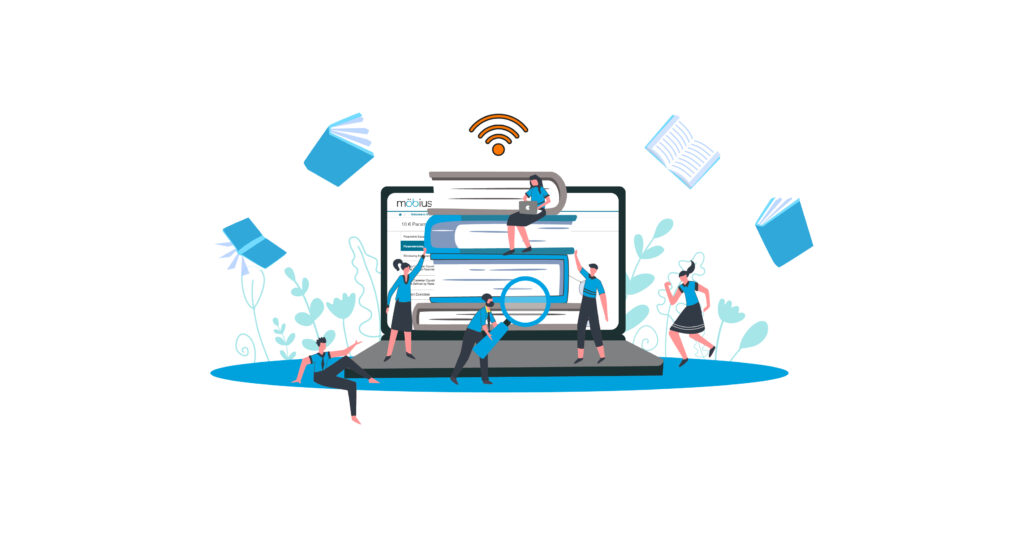Inclusive Education in the Digital Era: Empowering Every Student

As the world is progressing towards a digital future, the potential for truly inclusive education has never been greater. As facilitators of education, it is our responsibility to harness the power of digital tools to create equitable learning environments that cater to the diverse needs of all students. This blog delves into the importance of inclusive education in STEM fields and explores how platforms like Möbius facilitate equity in education.
“Education is a human right with immense power to transform. On its foundation rest the cornerstones of freedom, democracy, and sustainable human development.” – Kofi Annan
The Importance of Inclusive Education
Inclusive education ensures that all students, regardless of their background or abilities, have access to quality learning opportunities. In the context of higher education and STEM fields, this approach is particularly vital. STEM disciplines drive innovation and economic growth, and it is imperative that we provide inclusive educational opportunities to nurture a diverse pool of future scientists, engineers, and technologists.
Addressing Digital Divides
To create an inclusive educational environment, we must address several digital divides:
- Connectivity and Infrastructure: Access to reliable internet and digital devices remains uneven. Many students, especially from rural and marginalized communities, lack the necessary tools to participate fully in digital education.
- Digital Skills: The ability to navigate and utilize digital tools effectively is essential. Students need to develop digital literacy to engage in digital learning and future job markets.
- Social Barriers: Factors such as language, gender, caste, and disabilities can hinder access to education. Inclusive education must address these social divides to ensure all students have equal opportunities.
How Technology Facilitates Inclusive STEM Education
The integration of technology in education offers numerous benefits that support inclusive learning environments, particularly in STEM education. Here’s how:
- Enhanced Engagement
Digital tools, such as interactive apps and multimedia resources, make learning more engaging. They can capture students’ interest and motivate them to explore STEM subjects further.
Adaptive learning technologies can tailor educational content to individual students’ needs. This personalized approach ensures that each student can progress at their own pace, focusing on areas where they need the most support.
- Increased Access
Technology in education enables learning to occur anytime and anywhere. Online resources and digital platforms break down geographical barriers, providing students from remote areas access to high-quality education.
- Collaborative Learning
Digital platforms facilitate collaboration among students, educators, and experts worldwide. This global exchange of ideas and knowledge prepares students for the interconnected world of STEM professions.
- Development of Future-Ready Skills
Digital learning equips students with critical skills such as problem-solving, critical thinking, and technical proficiency. These skills are essential for success in STEM fields and the broader digital economy.
Möbius: Building a Smart Classroom for Inclusive Learning
Möbius, by DigitalEd India, is a comprehensive blended learning platform designed to empower educators to create smart classrooms that cater to the diverse needs of their students. Möbius integrates seamlessly with existing curricula, offering a range of features that promote inclusive learning in STEM education:
- Digital Content Library: Möbius provides access to a vast library of digital content, including interactive simulations, multimedia resources, and educational games specifically designed for STEM subjects. This rich content library caters to different learning styles and can be adapted to accommodate individual needs.
- Interactive Multimedia Content: Möbius allows educators to create their own interactive multimedia content, incorporating elements like simulations and video-based learning. This empowers educators to tailor lessons to their specific teaching styles and student needs.
- Embedded Digital Assessment: Möbius provides a robust assessment suite with a variety of question formats, including multiple-choice, open-ended, and interactive tasks. This allows educators to assess student understanding in various ways and identify areas where additional support may be needed.
- Real-Time Data Analytics: Möbius offers real-time data and analytics on student progress. Educators can gain valuable insights into individual student performance and adjust their teaching strategies accordingly, ensuring every student receives the support they need to succeed.
- Collaboration Tools: Möbius provides integrated collaboration tools that enable students to work together on projects, share ideas, and engage in discussions – both within the classroom and remotely. This fosters a collaborative learning environment that is inclusive of students from diverse backgrounds and locations.
Möbius goes beyond simply providing access to technology. It empowers educators to create a truly smart classroom that fosters a culture of inclusion and empowers every student to thrive in STEM education.
Read more: Möbius STEM Learning: Unlocking the Potential of India’s Future
Impact on Inclusive STEM Education
By leveraging the capabilities of Möbius, educators can create more inclusive STEM learning environments. The platform’s personalized approach helps bridge the gap for students who may struggle with traditional teaching methods. Additionally, its collaborative features promote a sense of community and support among learners, fostering an inclusive culture within the classroom.
Book a personalized Möbius demo today!
Conclusion
In the digital era, inclusive education is not just a goal but a necessity. As educators, embracing technology to create equitable learning environments is our duty. By addressing digital divides and leveraging platforms like Möbius, we can ensure that every student has the opportunity to succeed in STEM fields and beyond.
The future of education lies in our ability to adapt and innovate. Inclusive education, supported by digital tools and technologies, empowers every student to reach their full potential. As we move forward, let us commit to creating learning environments where diversity is celebrated, and every learner has the chance to thrive.